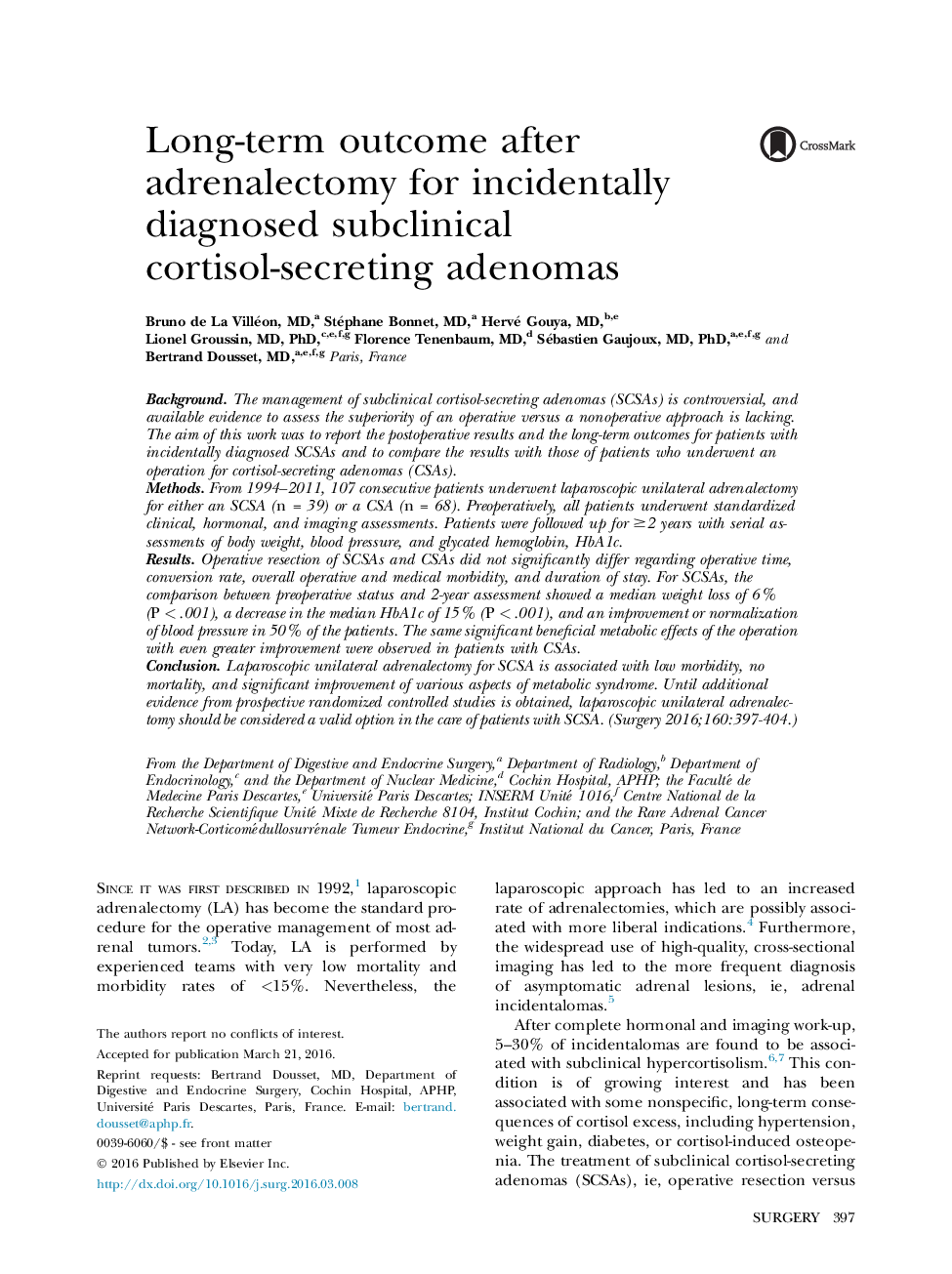| Article ID | Journal | Published Year | Pages | File Type |
|---|---|---|---|---|
| 6254979 | Surgery | 2016 | 8 Pages |
BackgroundThe management of subclinical cortisol-secreting adenomas (SCSAs) is controversial, and available evidence to assess the superiority of an operative versus a nonoperative approach is lacking. The aim of this work was to report the postoperative results and the long-term outcomes for patients with incidentally diagnosed SCSAs and to compare the results with those of patients who underwent an operation for cortisol-secreting adenomas (CSAs).MethodsFrom 1994-2011, 107 consecutive patients underwent laparoscopic unilateral adrenalectomy for either an SCSA (n = 39) or a CSA (n = 68). Preoperatively, all patients underwent standardized clinical, hormonal, and imaging assessments. Patients were followed up for â¥2 years with serial assessments of body weight, blood pressure, and glycated hemoglobin, HbA1c.ResultsOperative resection of SCSAs and CSAs did not significantly differ regarding operative time, conversion rate, overall operative and medical morbidity, and duration of stay. For SCSAs, the comparison between preoperative status and 2-year assessment showed a median weight loss of 6% (P < .001), a decrease in the median HbA1c of 15% (P < .001), and an improvement or normalization of blood pressure in 50% of the patients. The same significant beneficial metabolic effects of the operation with even greater improvement were observed in patients with CSAs.ConclusionLaparoscopic unilateral adrenalectomy for SCSA is associated with low morbidity, no mortality, and significant improvement of various aspects of metabolic syndrome. Until additional evidence from prospective randomized controlled studies is obtained, laparoscopic unilateral adrenalectomy should be considered a valid option in the care of patients with SCSA.
